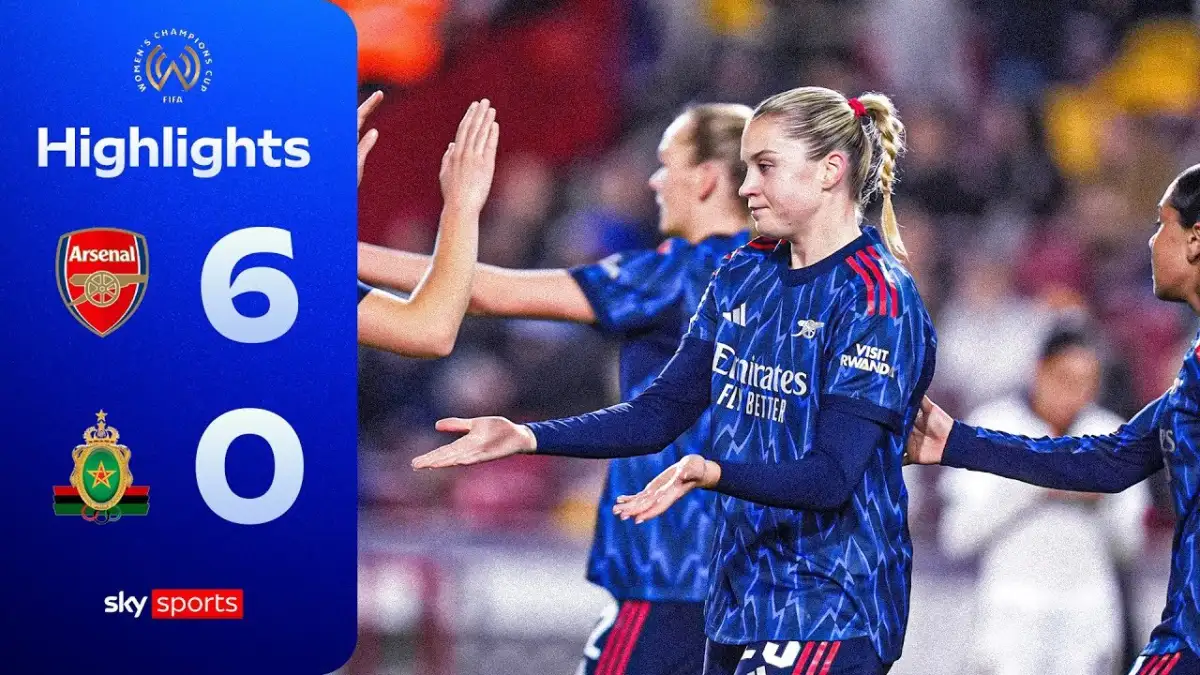These are the best moments of Euro 2025 according to Queenballers!

The festival of women's football is over. The European Championship title remains in England. Significantly, it was decided by penalties, which have been a feature of the entire tournament. In addition to the frequent penalties, the championship in Switzerland will also be remembered for its record viewership and many surprising moments. Let's take a look back at them.
Biggest surprise: Italy
They surprised everyone in their opening match when they defeated the slightly favored Belgium, led by star player Tessa Wullaert.
The only goal of the match was scored by Arianna Caruso, one of the players who was considered the biggest star of the Italian team. Rightly so, as she has played more than 200 matches for Juventus and will start the new season as a player for German champions Bayern Munich, where she has remained after a six-month loan spell.
In the final group match, the Italians put pressure on the favored Spanish team for a long time, and although they ultimately lost, they were able to celebrate advancing to the quarterfinals, where they faced Norway, which had been dominant up to that point and was therefore slightly favored. The hero of the match was their captain Cristiana Girelli, who scored two goals to send Italy to the semifinals for the first time since 1997. The last goal, making it 2-1, came in the last minute, thus avoiding extra time and penalties, which had otherwise been common in the tournament.
However, the end of the Italians' tournament is very bitter. In the last match, Girelli was injured and had to leave the field earlier than the 35-year-old Juventus striker would have liked. The Italians were perhaps seconds away from a sensation when they could have sent the defending champions from England home thanks to a goal in the 33rd minute. However, they were caught out by their own delaying tactics, with the referee adding seven minutes of extra time. And in the last minute, Michelle Agyemang destroyed Italy's dream with an equalizing goal.
The players in green jerseys had a great chance in stoppage time, but their hopes were first denied by goalkeeper Hannah Hampton. Then, in the final minute, it was Chloe Kelly who buried Italy’s dreams. After a foul on Beth Mead, Kelly stepped up to take the penalty. Although her effort was saved, the ball rebounded off the goalkeeper and the quick-thinking English striker was the first to react, allowing the Lionesses to celebrate their place in the final. For the Italians, who had led for most of the match, there was nothing left but heartbreak.
Biggest disappointment: The Netherlands
The Netherlands made a stellar start to the tournament. Vivianne Miedema opened the scoring with a stunning strike from outside the box. And it wasn’t just any goal — it marked the 100th for the national team by the newly turned 29-year-old, making her the first Dutch player ever to reach this milestone. And she did so despite recently recovering from a torn ACL and missing a large part of this season due to injury.
The Dutch went on to defeat Wales 3–0. But that would prove to be their only win of the tournament. The 2017 champions failed to advance from the group stage, due in part to a poor performance against England, and will not look back on this year’s tournament fondly. Even though they found themselves in the so-called “group of death” — Group D — a team of the Netherlands’ calibre was expected to deliver more than a defeat to a debutant.
The mood wasn’t helped by head coach Andries Jonker either. This was his final match in charge; he had already announced in January that he would be stepping down after the tournament.
Thumbs down: Penalties
If there’s one thing that truly characterizes this year’s tournament, it’s the sheer number of missed penalties. It’s hardly surprising, then, that penalties also ended up deciding the winner. But let’s go in order. The England–Sweden quarter-final says it all. That penalty shootout alone could fill an entire article. In short – Sweden held a two-goal lead as late as the 79th minute, only for England to erase it in just two minutes. Extra time brought no goals, so penalties had to determine the semifinalists.
It took until the seventh round of the shootout for England to finally clinch it. Out of fourteen penalties, five were missed — two by Sweden, three by England. Fans and pundits alike have called it the worst penalty shootout of all time, and not without reason. It was ultimately decided when 18-year-old Smilla Holmberg skied her shot well over the bar. The young player, who had the weight of an entire nation on her shoulders, was later consoled by none other than Zlatan Ibrahimović — and if you remember Euro 2004 and Sweden’s match against the Netherlands, you’ll know Zlatan understands a thing or two about missed penalties.
But this wasn’t the only semifinal settled by penalties. The France–Germany match had all the makings of a German disaster. Their 5-4-1 lineup made it clear that coach Wück intended to rely heavily on defense. Germany came into the match far from their best — they struggled to break down Poland in their opener, lost captain Giulia Gwinn to injury before halftime, had to come from behind to beat Denmark, and were thrashed 4–1 by Sweden (not helped by a red card). And once again, Germany were reduced to ten players as early as the 13th minute, when Kathrin Heidrich yanked French captain Mbock by the hair — earning a straight red and conceding a penalty, which France converted to take a 1–0 lead.
Despite being a player down, Sjoeke Nüsken managed to equalize with a header, and Germany held on all the way to penalties, where their new hero Ann-Katrin Berger secured their place in the final — just like she did in Paris last year, when she helped them win Olympic bronze.
This tournament has also been marked by an extraordinary number of missed penalties — even from players of the highest calibre, like Alexia Putellas and Mariona Caldentey. Both Spaniards had a chance to settle their quarter-final against hosts Switzerland much earlier. After Nadine Riesen’s foul, Caldentey had the chance to give Spain the lead early on, but missed the target. Spain were awarded another penalty late in the game, this time taken by ‘La Reina’ — the queen — Alexia Putellas. But her shot was saved by Swiss keeper Livia Peng.
Sjoeke Nüsken also missed a penalty against France, although she redeemed herself later in the shootout. Norway’s captain and the first-ever Ballon d’Or Féminin winner Ada Hegerberg missed twice from the spot.
This tournament has simply been cursed when it comes to penalties — even for seasoned, decorated players.
Player of the Tournament: Chloe Kelly
Much has already been written about the 27-year-old Arsenal striker — and surely more will be. Her story is made all the more compelling by the fact that, as recently as January, she considered quitting football altogether because, in her own words, she “wasn’t enjoying it anymore.” At the heart of her frustration were tensions with Manchester City manager Gareth Taylor.
Everything changed with a loan move to Arsenal, where she said she rediscovered her joy for the game. And more than one England fan is grateful she didn’t hang up her boots. Without her, the trophy may not have made its way to London.
Chloe never started a match in the tournament. But whenever she came on, she turned the game. Just look at the quarter-final against Sweden — it took her only seconds to assist the goal that made it 2–1, and she was involved in the equalizer, too. It was a similar story against Italy: she missed a penalty, but reacted quickest to the rebound to send England into the final.
She made her mark in the final as well — her corner led to Alessia Russo’s equalizer, and it was Kelly who scored the decisive, winning penalty in the shootout. She didn’t whip off her shirt this time, like she did after her winning goal in the 2022 final — but once again, she cemented her status as an English hero.
A Joyful Ending: The Growth of Women’s Football
Women’s football is on the rise. According to research on current trends, it has the potential to become the fifth most-watched sport in the world by 2030 — and the recently concluded tournament only reinforces that prediction.
Despite not being one of the world’s most tourist-friendly destinations, Switzerland became the mecca of women’s football in July 2025, drawing tens of thousands of fans. Attendance records were broken. The group stage alone drew a historic 461,582 spectators — the highest ever for a non-knockout round at a women’s football tournament. And the records didn’t stop there — the knockout stages saw similarly massive turnouts.
Swiss cities were flooded with fans draped in national colours. Chants echoed not just from the stadiums, but through the streets, as supporters marched together toward the venues ahead of matches. Sure, that’s a common sight at men’s tournaments. But in women’s football, such scenes weren’t yet reality even as recently as 2017.
We’ve already reported on how Euro 2022 in England transformed attendance and viewership figures in the Women’s Super League. Now, we can start observing similar ripple effects — not just in Switzerland, but potentially across Europe. It’s up to leagues, clubs, and associations to harness this momentum and turn the one-time spectators of this past month into long-term fans of the women’s game.













